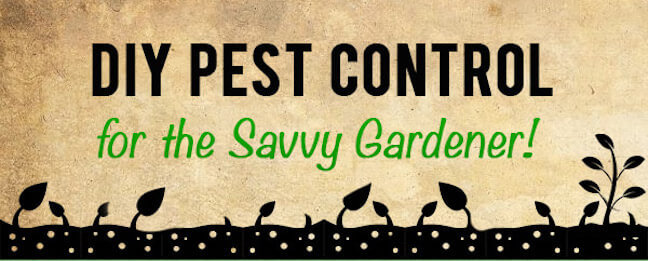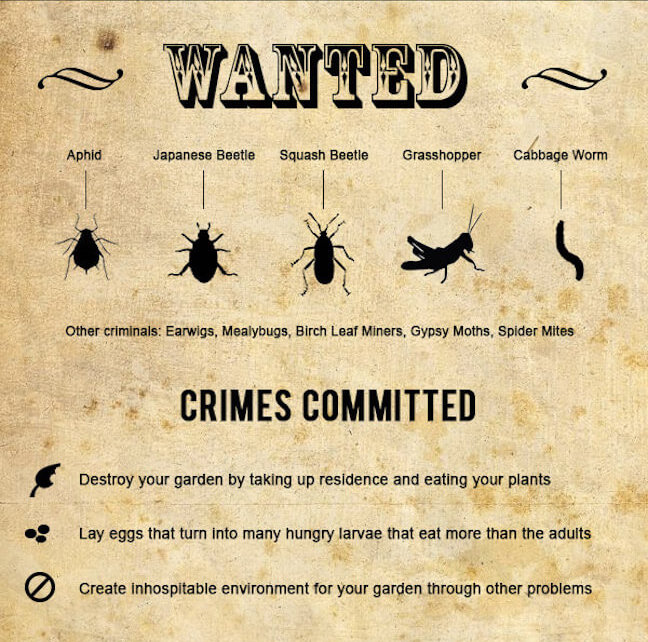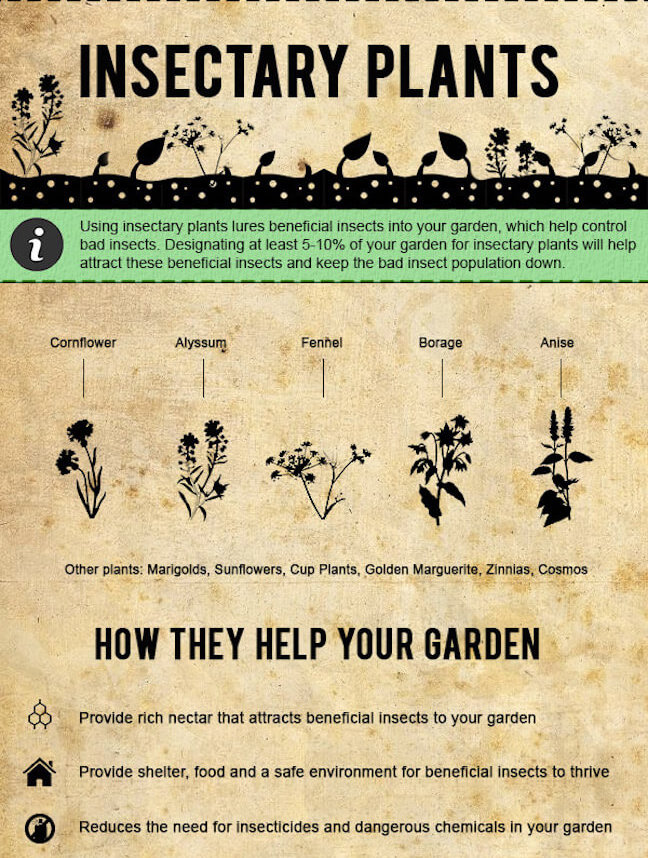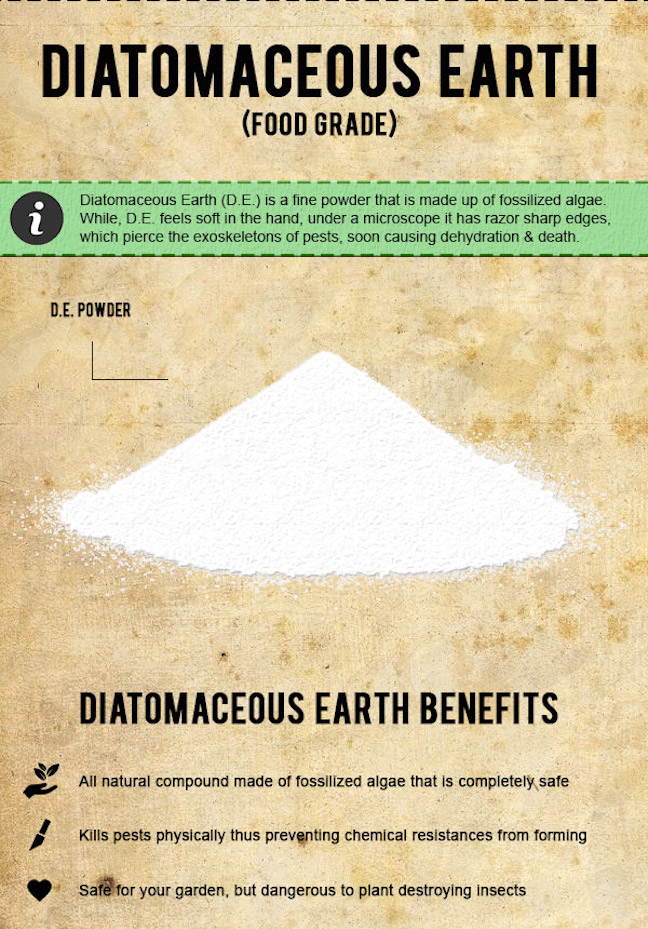Struggling with garden pests?
Organic pest control offers effective solutions without harmful chemicals.
This guide covers using beneficial insects, strategic planting, and natural barriers to keep pests at bay.
Keep reading to find out!
Quick Tips for Organic Pest Control:
- Identify Beneficial vs. Harmful Bugs: Know which insects benefit your garden and which harm it.
- Employ Beneficial Insects: Use natural predators like lady beetles and lacewings.
- Plant Insectary Plants
- Use Row Covers and Diatomaceous Earth
Organic Pest Control Overview
While pest control may sound simple and basic. The truth of the reality is maintaining a garden can be tricky, especially if when unwanted pests get involved.
Organic gardening, including organically removing pests can be done. But it must be done correctly. There are tons of options for maintaining a pest free garden other than spraying chemicals.
Where do I start you may be wondering?
Let's break it down and go over some different approaches.
Identifying Garden Pests- Not all Bugs are Bad
First we'll start with the bugs themselves. There are "good" and "bad" bugs and the key for a successful organic garden is knowing the difference.
In fact, many of the good bugs will actually help you control the bad ones.
Here's the deal, you want to eliminate these bugs:
Aphids
Earwigs
Grasshoppers
Just to name a few.
It's no secret, these bugs can wreak havoc on any garden and those are definitely the bugs that need a keep out sign.
It gets worse, not only will these pests eat the plants themselves. Their larvae do can be just as bad. For their size the bugs larvae eat much more than the adults.
There are a lot of bugs which are considered pests. But before you go killing all the bugs in your garden. Be sure to read organic pest removal tip number one.
 Organic Pest Removal Tip 1: Hire the Good Bugs
Organic Pest Removal Tip 1: Hire the Good Bugs
One organic solution to this pest problem is to bring in the "good" bugs.
Some of the beneficial bugs for organic pest control include:
Praying mantis
Lady beetles
Lacewings
Dragonflies
Simply put, these bugs can be a great help. They are predatory bugs that eat other insects and not plants. Also, they set up camp in your garden and provide continued security.
The good bugs be quite a simple solution for pest control, but how do you go about getting the "good" bugs and not the "bad" ones?
There are two ways.
- Simply order bugs online. You can easily get a box of bugs to place in your garden through the mail.
- Plant insectary plants. Insectary plants attract the "good" bugs by providing food and shelter to them.
Organic Pest Removal Tip 2: Plant Insectary Plants
Look here, if you use 5-10% of your garden to plant insectary plants you can cut down on the need to use chemicals.
These plants attract bugs which can help with pest control:
Fennel
Alyssum
Borage
You can get year long organic pest control by planting blooms throughout the growing season. At least during the season when the garden pests are most active.
Best of all you will add color to your garden and perhaps you will attract local pollinators too!
 Organic Pest Removal Tip 3: Use a Row Cover
Organic Pest Removal Tip 3: Use a Row Cover
If all else fails, row covers are another organic pest control option, when it comes to protecting your plants without resorting to chemicals. Row covers come in a variety of materials and thickness.
They allow air, water, and sunshine through while protecting your plants from pests.
Also, these covers are great for protecting plants from harsh weather, and can be covered with plastic in the winter to create a small greenhouse. Extending your growing season!
Row covers are simple and easy to install. All you will need is the cover material, metal hoops and something to use as an anchor. You place the metal hoops into the soil, cover, and anchor down.
Organic Pest Control Option #4: Use Diatomaceous Earth
If that is too much effort, go with an ancient solution.
Maybe a situation in which there are just too many bugs. You need to cut down on the number of these pests, NOW.
There's a product made from ancient fossils called Diatomaceous Earth.
Get this, the powder is actually razor sharp and can pierce the exoskeleton of a bug causing death.
It's completely safe for your plants and easy to apply. All you have to do is use a duster to dust onto the plant and be sure to reapply after a rainfall.
FAQ: Organic Pest Control
Why are organic pesticides more expensive than synthetic ones?
They often require more complex manufacturing processes and higher-quality ingredients that are not as widely available as synthetic chemicals.
Why do organic pesticides require frequent reapplications?
Organic pesticides generally have shorter effective periods and can degrade faster in the environment, necessitating more frequent application.
How do pheromone traps work?
Pheromone traps use synthesized insect hormones to attract and trap male insects, reducing the breeding population.
Are pheromone traps effective for all pests?
No, they are species-specific and generally used for monitoring rather than controlling pest populations.
What colors attract specific garden pests?
- Yellow: whiteflies, aphids, and other flying insects.
- White: cucumber beetles and flea beetles.
- Blue: flower thrips.
- Red: apple maggot flies.
How do floating row covers protect plants?
Floating row covers shield plants from insects, block some pests, and can modify temperature and light conditions to enhance plant growth.
What’s the Bottom Line on Organic Pest Control?
If you are having to face off a host of garden pests, there are several organic solutions you can utilize. From using beneficial insects, to fossilized algae, there are plenty of healthy, safe to use organic pest control options for your garden.
Here’s the deal, if you are in need of organic pest control, or need any landscape or lawn care professional, you can reach out to the pros at GreenPal. We have the best of the best when it comes to lawn care and landscaping professionals near you!
If you simply want to find more DIY and self-help articles, check out our blog.



 Share
Share









